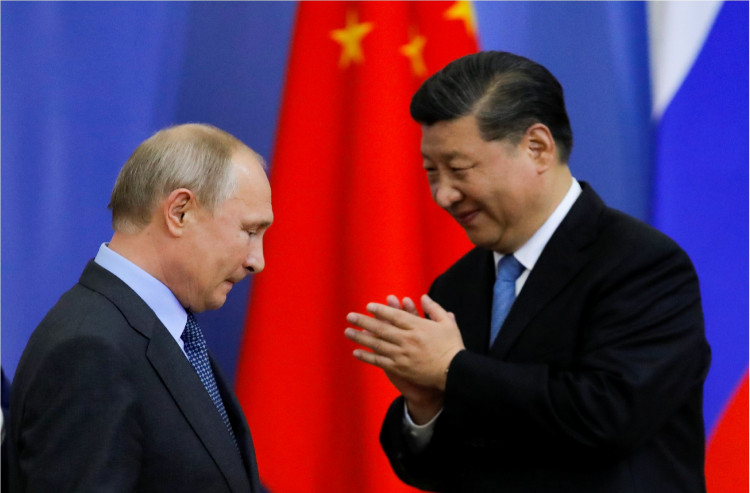China's Foreign Ministry has firmly denied reports suggesting it is considering participating in a peacekeeping mission in Ukraine, following claims by German media that Beijing could play a role in postwar security arrangements in the region.
"The reports in question are completely untrue, and China's position on the Ukraine crisis is consistent and clear," Foreign Ministry spokesperson Guo Jiakun said Monday during a press briefing in Beijing.
Guo's comments came after Welt am Sonntag published a report Saturday citing anonymous diplomatic sources in Brussels, who suggested that Chinese involvement in a future multinational peacekeeping force could help secure Russia's acceptance of foreign troops stationed in Ukraine once the conflict ends.
The German newspaper stated that Chinese diplomats had raised the idea of a peacekeeping role with European Union officials to gauge the feasibility and desirability of such involvement. The initiative was reportedly discussed as part of a broader strategy led by French President Emmanuel Macron and British Prime Minister Keir Starmer, aiming to form a "coalition of the willing" to support Ukraine after any peace deal.
Despite Beijing's rejection of the report, discussions of potential postwar security frameworks continue in European capitals. Macron and Starmer are scheduled to host Ukrainian President Volodymyr Zelensky at a summit in Paris on Thursday, where proposals for international peacekeeping forces-including possible contributions from Canada and Turkey-will be discussed.
China has long positioned itself as neutral in Russia's ongoing invasion of Ukraine, refusing to impose sanctions on Moscow or openly condemn the military aggression. Instead, Beijing has emphasized diplomatic efforts, including a 12-point peace plan introduced in February 2023, which Western nations largely dismissed due to China's close ties with Russia.
Velina Tchakarova, founder of the FACE geopolitics consultancy, noted on social media platform X, formerly Twitter, that "China's potential participation in a peacekeeping mission marks a significant development in its role regarding the Ukraine war given the [China-Russia] DragonBear modus operandi of a strategic coordination between China and Russia, reflecting their collaboration efforts across various domains to challenge Western influence and reshape the global order."
China's well-established record of contributing to United Nations peacekeeping missions, particularly in Africa, has bolstered its image as a global security participant. However, any direct involvement in Ukraine without a U.N. Security Council mandate would represent a sharp departure from its traditional non-interventionist foreign policy.
Recent reports in The Wall Street Journal and The Economist echoed the idea that China has quietly explored a potential role in Ukraine, possibly as part of a non-European security force tasked with monitoring a future ceasefire line. Chinese officials declined to comment on those reports, labeling the scenario as hypothetical.
At February's Munich Security Conference, Zhou Bo, a retired Chinese colonel and senior fellow at Tsinghua University, suggested Beijing could offer troops to support collective security guarantees in Ukraine, citing China's "sufficient troops and military strength."
Still, Guo Jiakun's remarks Monday reinforced Beijing's cautious approach. China continues to balance its strategic partnership with Moscow while seeking to preserve favorable relations with both European and Global South nations.
Meanwhile, Washington-led negotiations with Moscow over Ukraine's future continue, with talks held in Saudi Arabia on Monday. China has voiced support for dialogue but has refrained from advocating for any specific outcome.
European leaders remain wary of China's dual-use exports and growing trade relations with Russia, viewing potential Chinese involvement in Ukraine as diplomatically sensitive. As Welt reported, the question of China's participation in peacekeeping remains "delicate" given the broader geopolitical alignments at play.






